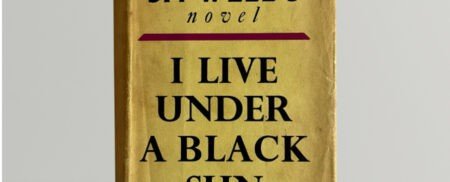The Enduring Love: A Timeframe of Evelyn Waugh’s Best Works
Evelyn Waugh, a luminary of 20th-century English literature, left an indelible mark with his acerbic wit, biting satire, and profound insights into the human condition. Born on October 28, 1903, in London, Waugh grew up in a well-to-do family and attended prestigious schools like Lancing College and Hertford College, Oxford. His experiences in these environments provided fertile ground for his keen observations of class, society, and the foibles of human nature, which would later permeate his works.
Waugh’s literary career began in the 1920s with works like “Decline and Fall” (1928) and “Vile Bodies” (1930), which satirised the decadence and frivolity of the interwar period. These novels established Waugh as a master of social satire, known for his razor-sharp wit and keen eye for absurdity. However, it was his magnum opus, “Brideshead Revisited” (1945), that cemented his reputation as one of the greatest English novelists of the 20th century.
“Brideshead Revisited” is a sprawling epic that follows the lives of the aristocratic Marchmain family through the eyes of the protagonist, Charles Ryder. Set in the years between the two World Wars, the novel explores themes of love, faith, and the decline of the British aristocracy. Waugh’s exquisite prose and vivid characterisations breathe life into the world of Brideshead, drawing readers into a captivating tale of longing and redemption.
Another of Waugh’s seminal works is “A Handful of Dust” (1934), a darkly comic novel that skewers the hypocrisy and moral bankruptcy of the British upper class. The story follows the misadventures of Tony Last, a hapless country squire whose life unravels in a series of tragicomic events. Through Tony’s journey, Waugh exposes the emptiness of materialism and the fragility of human relationships, delivering a scathing critique of modern society.
In “Scoop” (1938), Waugh turns his satirical lens towards the world of journalism, drawing on his own experiences as a correspondent to create a hilarious and incisive portrait of Fleet Street. The novel follows William Boot, a hapless rural reporter who finds himself thrust into the chaotic world of foreign correspondence. With its sharp wit and biting humour, “Scoop” remains one of Waugh’s most enduring works, offering a trenchant critique of the media’s penchant for sensationalism.
Waugh’s later works, such as “The Sword of Honour” trilogy (1952–1961), reflect his growing disillusionment with modernity and his embrace of Catholicism. Inspired by his experiences during World War II, the trilogy follows the journey of Guy Crouchback, a disillusioned soldier struggling to find meaning and purpose in a world torn apart by conflict. Through Guy’s quest for redemption, Waugh explores themes of honour, duty, and the search for spiritual fulfilment, crafting a poignant meditation on the nature of faith and sacrifice.
Throughout his career, Evelyn Waugh remained a singular voice in English literature, renowned for his wit, insight, and uncompromising vision. His novels continue to resonate with readers today, offering timeless reflections on the human condition and the complexities of the modern world. With their razor-sharp satire and profound humanity, Waugh’s works stand as enduring classics of 20th-century literature, ensuring his legacy as one of the greatest novelists of his generation.
For all our stock of Evelyn Waugh click here
Found out more about Evelyn Waugh here





